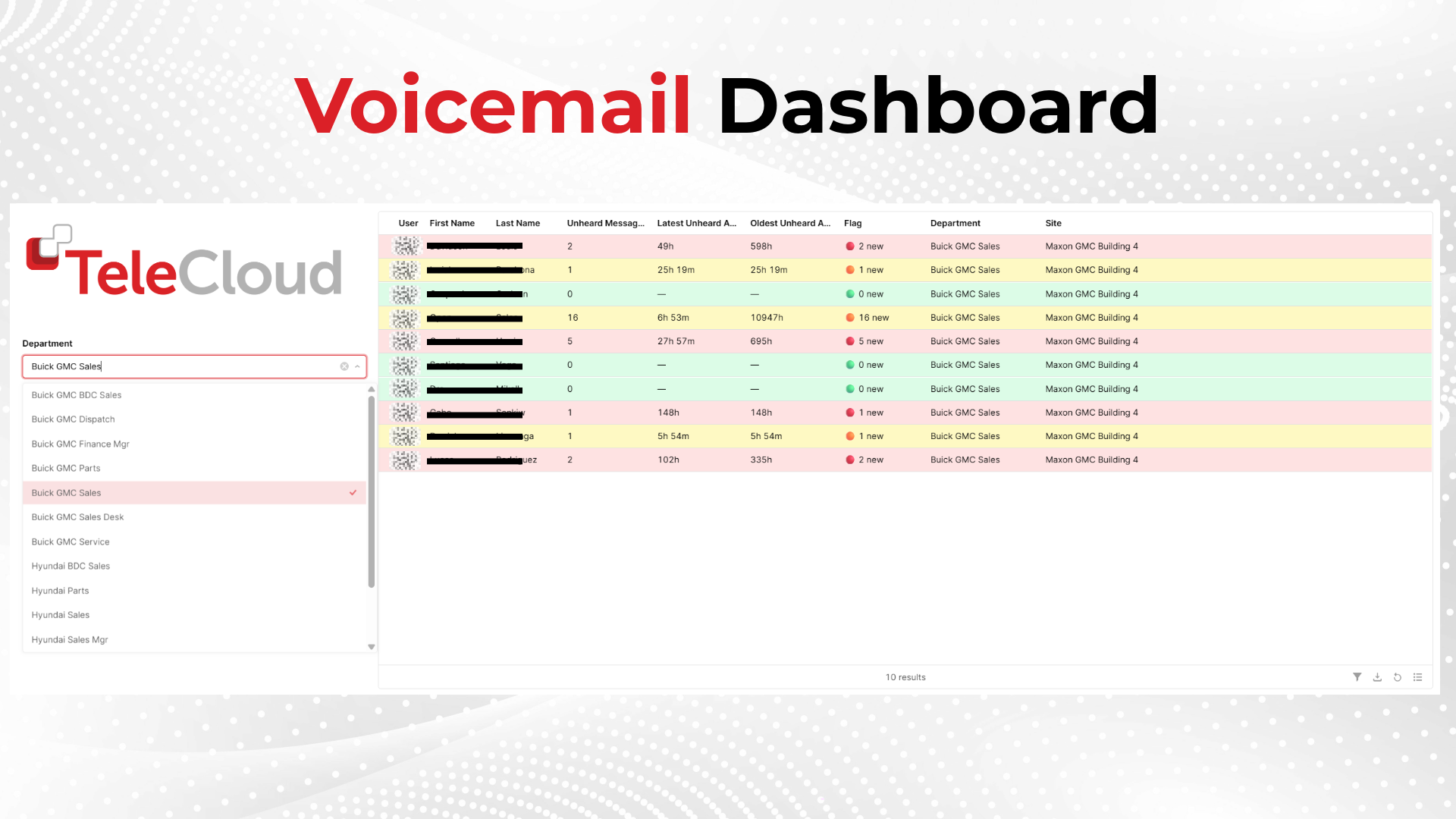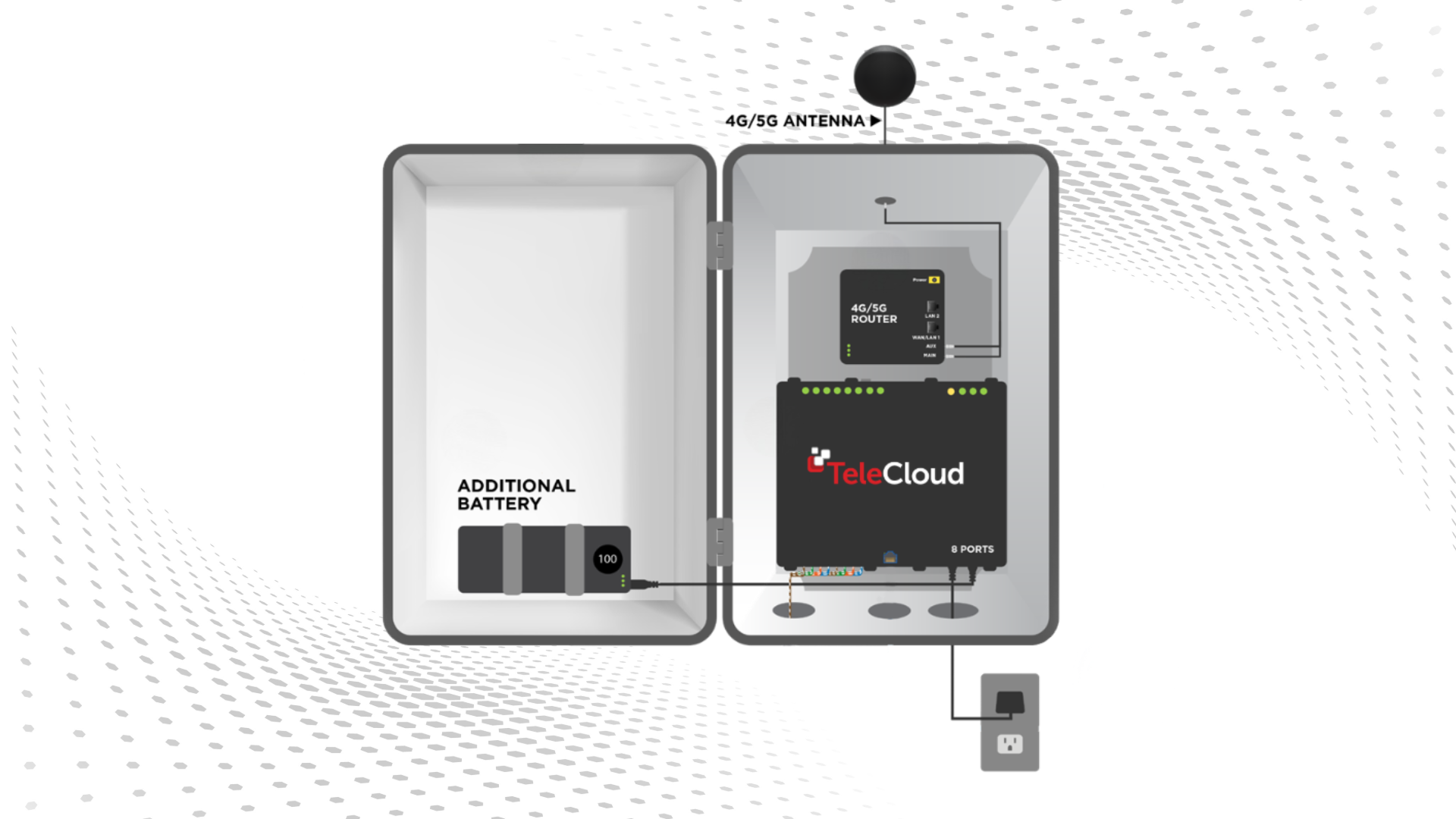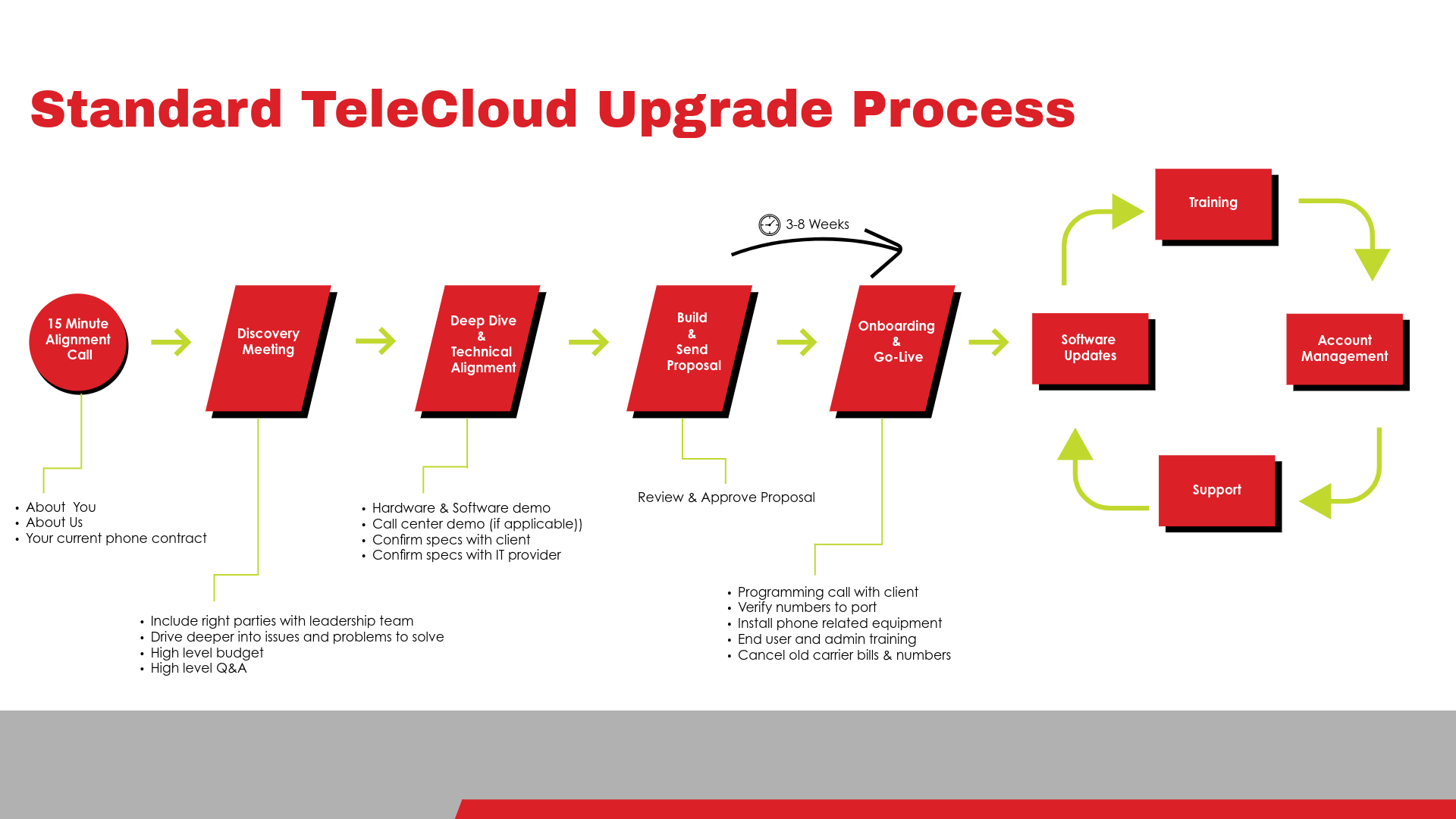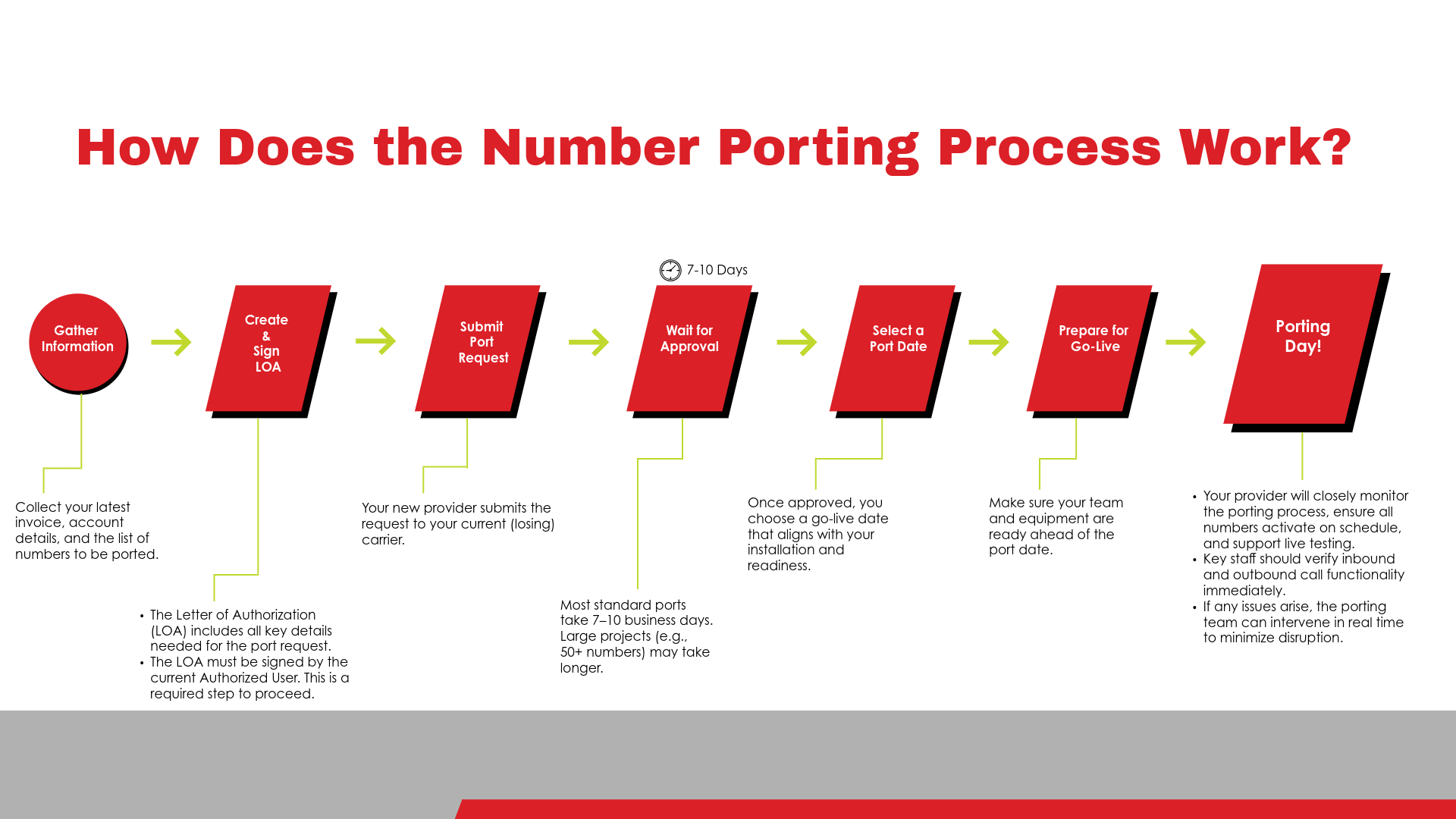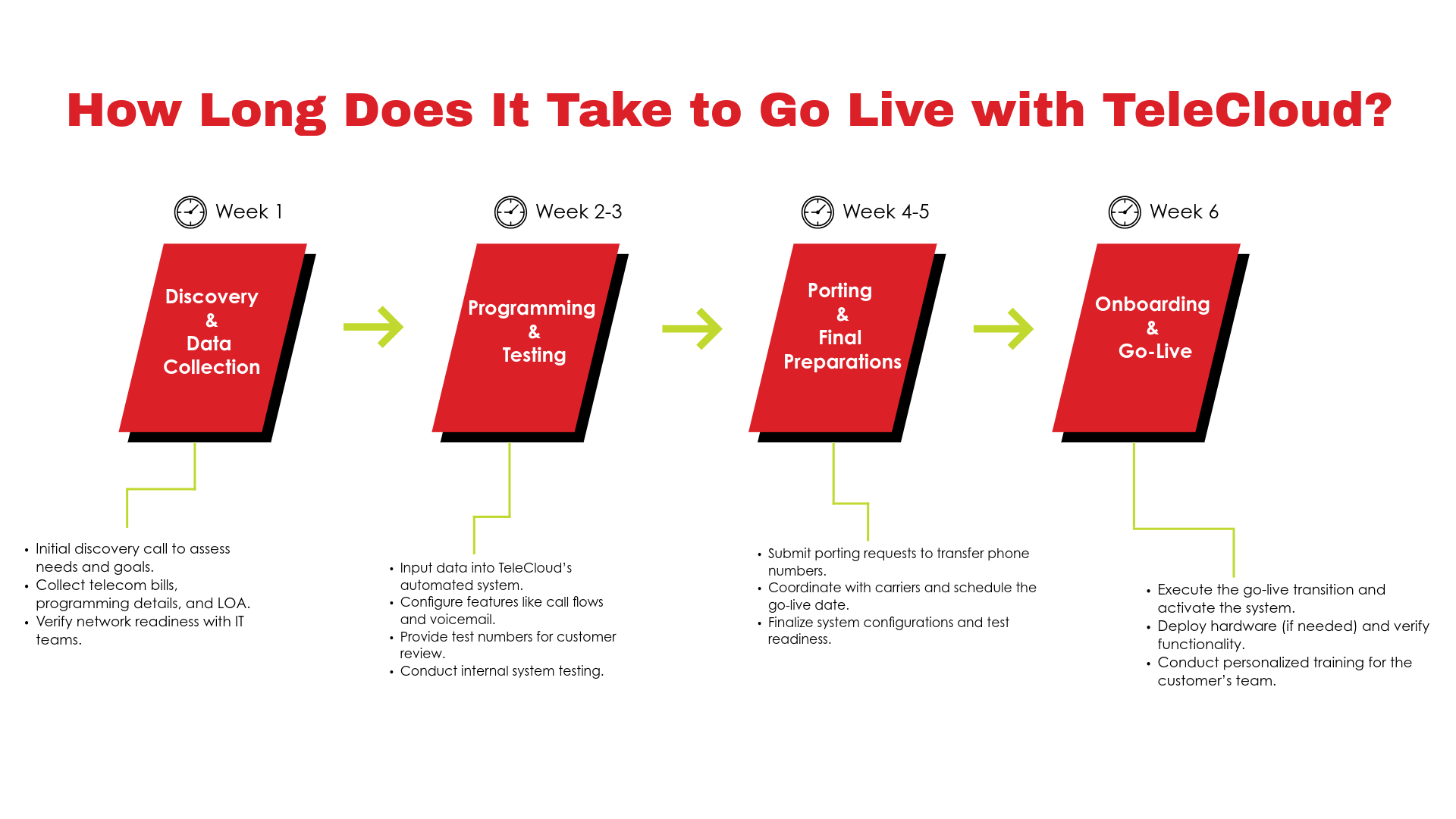
Businesses come to TeleCloud to fix their phone problems.

We are renowned in the telecom realm for getting big results in a multitude of New Jersey–based industries. If you’re experiencing any of the following problems with your current phone system and you want to do something about it, contact us here!
Our office is relocating, and our current phone system is very old.
When businesses relocate, many people make the same mistake: they wait too long before deciding what to do with their phone system. If you’re a small but growing company with anywhere from twenty to fifty employees, you should give yourself at least three to six months to plan the phone solution at your new location. Why so long? A big part of the time commitment lies with porting phone numbers because this impacts what contract you have with your phone service.
If you’ve outgrown your old system and want to make the transition to VoIP when you move, giving yourself upwards of six months allows you to plan for everything from transferring phone numbers to installing low-voltage wiring at the new office to picking out what type of phones you want. Giving yourself this time lets you evaluate what provider you want and eliminates lots of needless stress.
We’re getting terrible service from our current providers, and we’re frustrated.
Lots of companies are already on VoIP phone systems, but they just want to switch providers because they aren’t receiving satisfactory service. This is a common problem—and source of frustration. One important thing to remember in this situation is that the actual IP phones don’t need to be changed. If you’re using something like Yealink or Polycom, those phones are generally reusable across service providers. So, if you feel as if no one with your current phone provider is dedicated to helping you and it takes days just to get a callback when there’s a problem, know you can switch your provider while still keeping the phones you already know and like.
Our phone system is old and holding us back. We need to replace it.
 Companies often invite us to their offices to evaluate their old phone systems and to discuss switching to a VoIP solution. It’s not uncommon during these evaluations to find premises-based systems that are upwards of twenty-five years old, have highly limited functionality, and provide poor service because companies simply don’t want to repair them anymore.
Companies often invite us to their offices to evaluate their old phone systems and to discuss switching to a VoIP solution. It’s not uncommon during these evaluations to find premises-based systems that are upwards of twenty-five years old, have highly limited functionality, and provide poor service because companies simply don’t want to repair them anymore.
It’s important to note that most traditional phone manufacturers don’t have an upgrade plan, so there’s not often a clear, easy path to migrate to a cloud-based solution. This means businesses usually have to evaluate new phone providers to hire when switching to a more modern IP-based system.
We are looking for ways to reduce our monthly telecom expense.
 Many companies will have us perform an evaluation to see if we can drive down their monthly telecom costs. The first thing to note is that an IP-based solution will eliminate certain fees associated with traditional phone systems, such as expensive maintenance plans or T1 lines. In fact, many find a VoIP solution can reduce their monthly telecom fees by as much as 50 percent—and provide a better functioning system. This means you can often get increased capabilities at a reduced cost.
Many companies will have us perform an evaluation to see if we can drive down their monthly telecom costs. The first thing to note is that an IP-based solution will eliminate certain fees associated with traditional phone systems, such as expensive maintenance plans or T1 lines. In fact, many find a VoIP solution can reduce their monthly telecom fees by as much as 50 percent—and provide a better functioning system. This means you can often get increased capabilities at a reduced cost.
Because you’ll get a cost comparison between the potential new VoIP solution and your current system, it’s easy to quantify and to understand the hard-and-fast dollar difference. However, a VoIP solution also offers intangible savings through things like faster response time to clients, the ability to answer calls anywhere with mobile phone technology, and much more. VoIP systems can up your efficiency and efficacy, leading to increased revenue over time.
We are hiring additional employees and need to add phone extensions.
If you’re a successfully growing business that’s hiring staff members, it’s a great time to assess if you want to stick with your current traditional phone system or make the switch to an IP-based solution. If you’re looking to hire five to ten people, you might be better off investing in a VoIP system than sinking lots of money into expensive onsite hardware for your old system. You’ll have to do the math with an eye to your specific needs and growth, but this period of expansion might be an opportunity to upgrade to a new phone system instead of throwing money at a system you’ll likely replace down the road anyway.
Our phone line contract is finally ending, and we want to evaluate newer and less expensive technologies.
 Whatever phone system you’re using, it’s very likely you’re under a phone contract. Depending on your company’s situation, you need to know exactly when that contract with your phone provider expires. Establish when the contract ends, and then give yourself between three and six months to shop around and to research new phone technology. It’s common for companies not to know their contract end dates and then to have to wait years to replace their T1 lines with IP phones. To avoid automatic renewal, communicate to your phone provider that you want your contract to go month to month upon expiration. This is particularly important because T1 circuits are becoming increasingly obsolete and have real limitations, and contract expiration is the perfect time to bring in more flexible, more affordable, more user-friendly phone technology.
Whatever phone system you’re using, it’s very likely you’re under a phone contract. Depending on your company’s situation, you need to know exactly when that contract with your phone provider expires. Establish when the contract ends, and then give yourself between three and six months to shop around and to research new phone technology. It’s common for companies not to know their contract end dates and then to have to wait years to replace their T1 lines with IP phones. To avoid automatic renewal, communicate to your phone provider that you want your contract to go month to month upon expiration. This is particularly important because T1 circuits are becoming increasingly obsolete and have real limitations, and contract expiration is the perfect time to bring in more flexible, more affordable, more user-friendly phone technology.
We’re not sure what VoIP provider to hire because there are too many options.
If you’ve started looking into the VoIP marketplace, you’ve likely discovered that countless companies across the country (and even the globe) offer these services. It can quickly become overwhelming. Our best recommendation is to go with a company that’s local to you. Working with a national firm often means they can’t travel to your office—before or after the install, even if you have problems. A local company, however, can handle the survey, installation, and equipment maintenance face to face.
It’s important to understand there are real differences between national and local VoIP providers, and at Tele-Data Solutions, we can help walk you through these often confusing and nuanced differences between providers. We also fully acknowledge we’re not always the best fit for every company, and we’ll always be honest and upfront with your company if we aren’t well positioned to meet your company’s VoIP phone needs.
We are overwhelmed trying to figure out how to replace our current phone system.
We recognize that replacing your phone system can be confusing, and that’s largely because installing a VoIP phone system requires specific expertise and knowledge. From Cat 5 Ethernet cabling to the correct firewall and switches, there are a lot of components to a VoIP phone system, and you want an expert installing that system to ensure high call quality and performance. We partner with your existing local IT company to ensure all our recommendations are proper and appropriate for your business. When you go with Tele-Data Solutions, part of what we offer is a complimentary onsite survey to assess your office layout, as well as your existing network wiring closet, which helps ensure we make the right recommendations for your company and physical space.
We want more capabilities and features with our new phone technology.
 You’ll likely aware that IP phones offer a wide and impressive selection of new features that are simply unavailable through traditional phone systems. This includes everything from end-user software technology that ties into your phones to mobile software to call center technology that provides call reporting, CRM integration, analytics, and more. We find many companies switch simply because new phone systems can offer such superior capabilities, and we’re able to provide a comprehensive demonstration of all those features. We’re also able to help you evaluate which features will most benefit your company.
You’ll likely aware that IP phones offer a wide and impressive selection of new features that are simply unavailable through traditional phone systems. This includes everything from end-user software technology that ties into your phones to mobile software to call center technology that provides call reporting, CRM integration, analytics, and more. We find many companies switch simply because new phone systems can offer such superior capabilities, and we’re able to provide a comprehensive demonstration of all those features. We’re also able to help you evaluate which features will most benefit your company.
Our IT provider recommended we get a VoIP phone system, but they don’t offer that service.
Many businesses have trusted relationships with their computer consultants or IT companies, but most of those IT companies don’t directly offer IP-based phone services. VoIP phone systems comprise a specialized niche that requires a specific knowledge base, and many IT companies are not equipped to successful manage these systems. Tele-Data Solutions can partner with your IT company, however, to make educated VoIP recommendations that make sense for your business. We cooperate with your trusted consultants to ensure every recommendation is tailored to your company and suited to your needs.
We’re concerned about hiring a national VoIP provider that doesn’t know our business or staff and won't come onsite when handling our new phone system.
If you’re a small business and you buy a phone system from a large national provider, you’ll likely receive the phones, router, and other equipment in a box for you to install yourself. Maybe you’re comfortable with that arrangement, but be aware that the “phone in a box” solution can be problematic. If you have any issues—with initial installation or call quality post-installation—that national company won’t come onsite to help. Any and all support will be offered remotely.
A local company, on the other hand, can offer white-glove installation services. From surveying to training to ongoing maintenance, a local company can simply dispatch a telecom expert to your location every time one is needed onsite. When it comes to VoIP phone systems, working with a local company can mean the difference between frustrating support encounters and one-on-one personalized attention.
We have a small business, and we think we’re ready for call center technology.
Determining if you’re ready for call center software isn’t always just about the number of employees. You might be a small business (between fifteen and fifty employees), but you could very well operate like a mini call center. If you’re looking to manage your inbound calls more efficiently—whatever your size—it’s worth looking into the benefits and features associated with call center technology.
 By Vincent Finaldi
By Vincent Finaldi
Vice-President, Tele-Data Solutions
E-mail: vin@tele-datasolutions.com | Direct Line: (908) 378-1218
What brings me satisfaction is meeting with New Jersey–based businesses and genuinely helping them solve communication and business problems. As someone who has lived in New Jersey my entire life, I love working and playing here. I live in Morristown with my wife, Lisa, and root for the New York Giants.
vin@telecloud.net OR call/text 908-378-1218





